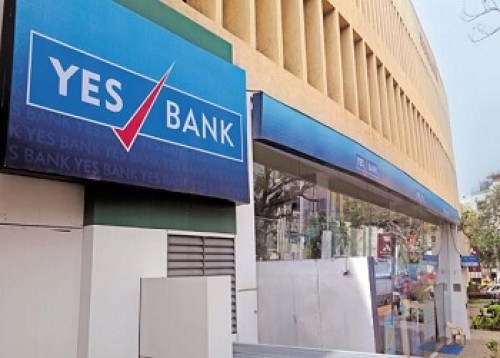SEBI fines Yes Bank for fraudulent sale of riskier bonds

Follow us Now on Telegram ! Get daily 10 - 12 important updates on Business, Finance and Investment. Join our Telegram Channel
MUMBAI - India's market regulator on Monday fined Yes Bank Ltd 250 million rupees ($3.33 million), saying it had fraudulently sold certain risky bonds to mom-and-pop investors without the necessary warnings and risk assessments.
Yes Bank "deliberately misrepresented" its so-called AT1 bonds as being more attractive than fixed deposits by suppressing risks and distorting facts, manipulating customers into investing in these risky assets, the Securities and Exchange Board of India (SEBI) said in an order.
AT1 bonds have quasi-equity characteristics and typically carry higher interest rates than more senior debt as investors risk losing their investment if the funds are needed to bolster a bank's capital.
A revival plan for debt-laden Yes Bank last year saw its AT1 bonds fully written down, hurting many retail investors. Yes Bank had about 88 billion rupees ($1.2 billion) in AT1 capital as of March 2019.
There was "clear mala fide intent" on the part of Yes Bank in selling the bonds to its customers, including those with a low risk appetite and those of very advanced age, SEBI said.
Yes Bank declined to comment.
The lender, in its submission to SEBI, said the risk factors were communicated to investors either orally or in written documents.
Yes Bank also said that there was no need to assess the risk profile of prospective investors as AT1 bonds were considered low risk given that there was no indication at the time that the bank would fail and the bonds would have to be written down.
Last year, SEBI restricted investments in such bonds to qualified institutional investors and raised their allotment and trading lot sizes to 10 million rupees.
(Reporting by Abhirup Roy; Additional reporting by Nupur Anand; Editing by Kirsten Donovan)












 320-x-100_uti_gold.jpg" alt="Advertisement">
320-x-100_uti_gold.jpg" alt="Advertisement">












